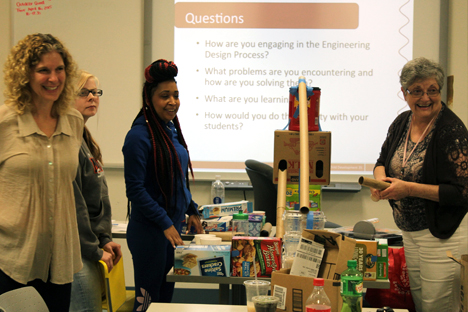Why Was This Course Developed?
There is a growing emphasis nationwide on the importance of incorporating science and math education into early childhood programs. It is widely recognized that young children should have foundational competence in mathematics and science before they begin kindergarten.
The National Institute for Early Education Research recommends that mathematics and science be treated as essential components of a high quality program, not as extras. The relationship between early science and math education and later academic achievement is well documented. Science in early childhood not only builds a basis for future scientific understanding, but also builds important skills and attitudes for learning, such as curiosity, a drive to experiment, a desire to test theories, and to share new ideas. Early math skills are proven to be predictive of later academic achievement.
Despite the clear value of early science and mathematics in preschool education, many college students in early childhood programs are leaving their undergraduate experiences ill-prepared to provide high-quality science and mathematics education to young children. They often find math and science to be intimidating subjects, and undergraduate students who are already uncomfortable with these subjects typically find little support in their pre-service early childhood programs to help them overcome their lack of confidence
Early childhood faculty may carry these same phobias about math and science content. In many Early Childhood Education departments, it is sometimes a challenge to find a faculty member or other instructor who feels they have enough expertise to teach a science and math curriculum course. Early Learning in Math and Science is intentionally designed to help overcome these barriers through an innovative course model built around principles of constructivist learning. The tools and resources provided to teach this course support the instructor in creating an interactive, student-centered environment in which the learning relationship is mutually beneficial to both students and teachers.

"I learned SO much through handling and learning from the materials myself! Why can’t ALL classes be taught this way?"